DeepSeek vs ChatGPT: A Complete Comparison (+ Tips for Singapore Businesses) in 2025
In 2025, artificial intelligence is no longer a futuristic concept—it’s a business-critical tool. From automating customer service to enhancing software development and research workflows, AI models like ChatGPT and DeepSeek AI are rapidly transforming how Singaporean companies operate.
So how do these two powerful tools compare? Which one is better for your business goals, development projects, or enterprise-scale automation?
In this blog, we break down the key differences between DeepSeek vs ChatGPT benchmarks—covering performance, pricing, coding capabilities, integration, and more. We also share practical tips tailored to Singapore-based businesses, helping you make a smart, future-ready AI choice. Let’s dive in.
Table of Contents
- DeepSeek AI Overview
- ChatGPT Overview
- DeepSeek vs ChatGPT: Key Differences in 2025
- Pros and Cons of DeepSeek and ChatGPT
- DeepSeek AI vs ChatGPT: Which Is Better for You?
- Tips for Singapore Businesses Choosing Between DeepSeek and ChatGPT
- How Kaopiz Helps Singapore Businesses Leverage AI Solutions
- Conclusion
- FAQs
DeepSeek AI Overview
DeepSeek AI is an open-source large language model (LLM) developed by a Chinese AI research company spun out of High-Flyer, a quantitative hedge fund based in Shanghai.
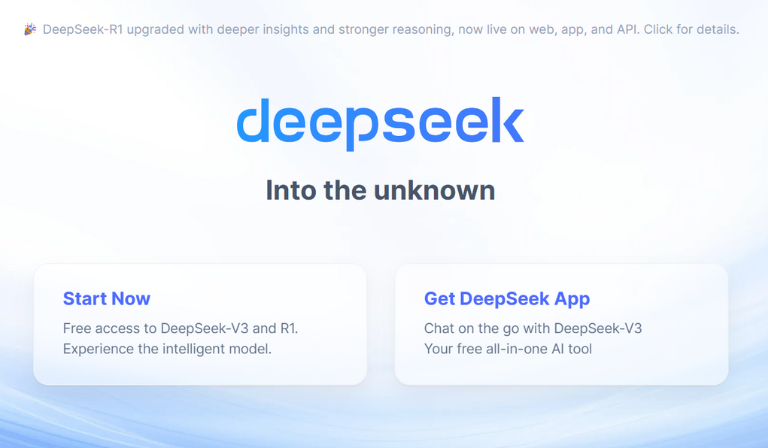
First released in 2023, DeepSeek positions itself as a cost-efficient alternative to Western LLMs like ChatGPT, focusing on research accuracy, structured reasoning, and programming capabilities.
Key DeepSeek AI Statistics:
- In 2025, DeepSeek holds an estimated 8% share of the global conversational AI market, with 278 million monthly visits and ~25 million daily users.
- By January 2025, reached 33.7 million monthly active users (MAU) — ranked 4th most-used AI app globally (KR-Asia).
- By Q2 2025, DeepSeek AI expanded to 37 countries, offering localized support in languages like Arabic, Swahili, and Vietnamese.
Core Strengths:
- Deep Research: Performs exceptionally well in academic-style, multi-step reasoning tasks.
- Programming: Supports Python, C++, Java, and more — capable of writing, explaining, and debugging code.
- Structured Logic: Excels in math-heavy, rule-based tasks like algorithm design and data analysis.
Thanks to its Mixture-of-Experts (MoE) architecture and open-source model availability, DeepSeek has become a popular choice among cost-conscious startups, research teams, and developers across Asia, including Singapore.
ChatGPT Overview
ChatGPT is a proprietary LLM developed by OpenAI, a U.S.-based AI research company. Built on the powerful GPT (Generative Pre-trained Transformer) architecture, ChatGPT has become the most widely adopted AI assistant globally, used across industries for content generation, automation, research, and coding.
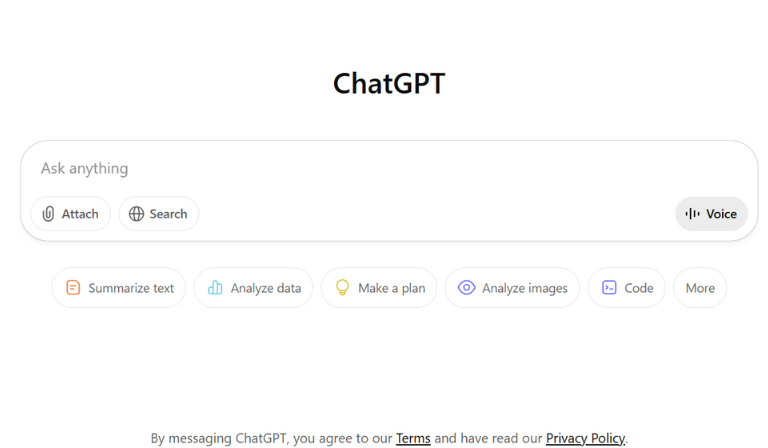
Originally launched in late 2022, ChatGPT quickly gained mass adoption thanks to its versatility, user-friendly interface, and integration with Microsoft products. Its latest version, GPT-4o (Omni), released in 2024, introduced multimodal capabilities — allowing users to interact via text, voice, images, and even real-time video input.
Key ChatGPT Statistics:
- As of mid-2025, ChatGPT has 180.5 million MAU and 122.6 million daily active users (DAU).
- This AI tool is used in 161 countries, with the U.S. leading at 16%, followed by India and Brazil.
- ChatGPT is the 5th most visited site globally, holds 60% of the conversational AI market, and averages 20+ user prompts per day.
Core Strengths:
- Conversational AI: Offers natural, human-like dialogue across a wide range of topics.
- General Knowledge & Creativity: Excels in brainstorming, writing, summarizing, and answering complex questions.
- Coding & Technical Tasks: Supports multiple programming languages with strong debugging and code explanation features.
- Enterprise Integration: Easily integrates with business systems via API and the Microsoft ecosystem.
With its extensive ecosystem, continual updates, and enterprise-grade capabilities, ChatGPT remains the go-to choice for businesses worldwide — including many in Singapore seeking AI for automation, productivity, and innovation.
DeepSeek vs ChatGPT: Key Differences in 2025
While both DeepSeek and ChatGPT are powerful AI models, they differ significantly in architecture, performance, pricing, and use cases. Below is a breakdown of the key differences between DeepSeek vs ChatGPT to help you choose the right tool for your needs in 2025.
| Category | DeepSeek AI | ChatGPT (GPT-4o) |
|---|---|---|
| Usage Statistics | ~25M DAU, 278M monthly visits, 8% market share | 122.6M DAU, 5.2B monthly visits, 60% market share |
| Model Architecture & Core Technology | MoE, 671B parameters (37B active per token) | Transformer-based dense model, GPT-4o is multimodal (text, vision, voice, video) |
| Speed & Response Time | Fast, optimized for cost-effective inference, low compute load | Fast and smooth, slightly higher latency for complex or multimodal tasks |
| Accuracy in Research & Reasoning | Strong in structured logic, academic reasoning, and long-context tasks | Excellent general-purpose performance, strong reasoning, better creativity |
| User Experience | Lightweight, minimal UI, steep learning curve for some users | Polished interface, user-friendly, integrated into Microsoft tools |
| Integration & API Ecosystem | Open-source models, flexible deployment, APIs still maturing | Mature API ecosystem, seamless integration with Microsoft, SaaS, and enterprise |
| Pricing & Cost Considerations | Lower cost (open-source, self-hosting possible), cost-effective for scale | Freemium + subscription, higher API pricing for GPT-4o |
| Energy Use & Sustainability | Efficient due to MoE — activates fewer parameters per token | Higher energy demand due to dense multimodal processing |
| Use Case Scenarios | Best for research, code generation, algorithm-heavy workflows | Best for general business tasks, content creation, customer support, education |
Model Architecture and Core Technology
At the core of both DeepSeek and ChatGPT lie powerful transformer-based architectures, but their design philosophies and technical implementations differ significantly, impacting performance, efficiency, and scalability.
DeepSeek AI uses a MoE architecture with 671B parameters, activating only 37B per request. This makes it efficient and cost-effective, ideal for research and logic-heavy tasks. It’s also open source, offering flexibility for customization and deployment.
ChatGPT (GPT-4o) is a dense, multimodal model that uses all parameters for each request, delivering high and consistent performance across text, image, audio, and video. It’s closed source but integrates seamlessly with tools like Microsoft 365 and Azure.
Verdict: Considering DeepSeek vs ChatGPT efficiency, you should choose DeepSeek for efficiency and flexibility and choose ChatGPT for enterprise-grade power and multimodal capabilities.
Speed and Response Time
DeepSeek AI is designed for efficiency, with its MoE architecture enabling faster response times on average, especially for text-based and logic-heavy queries. Its lighter compute load makes it well-suited for cost-sensitive, high-volume usage.
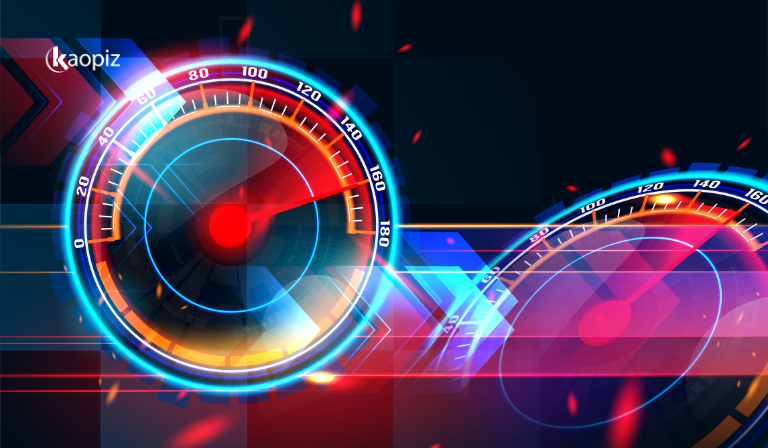
ChatGPT, powered by GPT-4o, delivers consistently fast responses, even for complex or multimodal tasks. While its dense architecture requires more compute power, OpenAI’s robust infrastructure ensures reliable speed and performance across use cases.
Verdict: DeepSeek is faster for lightweight, text-based tasks. ChatGPT offers broader, stable speed for more complex or multimodal interactions.
Accuracy in Deep Research and Reasoning
In the comparison between ChatGPT vs DeepSeek deep search, the two tools show clear differences in how each handles structured logic and factual consistency.
DeepSeek AI excels in structured reasoning, multi-step logic, and academic-style tasks. It performs especially well in domains like mathematics, programming, and deep research—making it a strong choice for technical users and analysts.
ChatGPT offers broad, well-rounded accuracy across general knowledge, creative writing, and reasoning tasks. It handles ambiguity and nuance effectively, though its responses can sometimes be less precise in highly technical or research-focused queries.
Verdict: DeepSeek is stronger in logical accuracy and technical research. ChatGPT is more versatile and excels in balanced, natural-sounding responses across a wide range of topics.
User Experience (Interface, Ease of Use, Learning Curve)
DeepSeek AI offers a minimal interface with a focus on functionality. While it’s powerful, it may require a steeper learning curve, especially for non-technical users or teams without prior experience with open-source tools.
ChatGPT, on the other hand, provides a highly polished and intuitive interface, making it easy for anyone—from individuals to enterprises—to get started. Its integration with tools like Microsoft 365 also enhances usability for business users.
Verdict: DeepSeek is better suited for developers and technical users. ChatGPT offers a more user-friendly, plug-and-play experience ideal for broader audiences.
Integration and API Ecosystem
One key difference between DeepSeek AI vs ChatGPT lies in their integration capabilities and API maturity.
DeepSeek AI offers open-source models that can be self-hosted and customized. While its API ecosystem is still evolving, it provides flexibility for developers who prefer control over infrastructure and model behavior. However, it may require more technical effort to integrate into production systems.
ChatGPT, backed by OpenAI and Microsoft, features a mature and robust API ecosystem. It’s widely integrated into platforms like Azure, Microsoft 365 Copilot, and numerous SaaS products. Its APIs are well-documented and scalable, making it easier for businesses to embed AI into workflows with minimal setup.
Verdict: If you need customization and control, DeepSeek AI is ideal. For ready-to-integrate, enterprise-grade solutions, ChatGPT is the better choice.
Pricing and Cost Considerations
The cost of DeepSeek vs ChatGPT is a major consideration for businesses evaluating AI tools in 2025.

DeepSeek AI is free to use, with models released under permissive licenses (e.g., MIT). Organizations can self-host the model on cloud infrastructure (like AWS, GCP, or on-prem) to control costs. On average, hosting and inference costs are estimated to be 30–50% lower than ChatGPT, depending on usage volume and optimization.
ChatGPT, powered by GPT-4o, is available through:
- ChatGPT Plus: $20/month (individual access to GPT-4o)
- OpenAI API (as of mid-2025):
- GPT-4o: $5.00 per 1M input tokens, $15.00 per 1M output tokens
- GPT-3.5: $0.50 per 1M input tokens, $1.50 per 1M output tokens
- Azure OpenAI: Similar pricing with region-based variations and enterprise support.
Verdict: Considering DeepSeek vs ChatGPT pricing, choose DeepSeek for lower total cost of ownership and flexibility. Opt for ChatGPT if you need a ready-to-use, fully managed solution and can budget for ongoing usage fees.
Energy Use and Sustainability
When comparing DeepSeek vs ChatGPT energy use, the difference lies in how each model processes requests.
DeepSeek AI uses a MoE architecture that activates only part of its parameters per request—typically 37 billion out of 671 billion. This makes it more energy-efficient and suitable for sustainable, large-scale deployments, especially in self-hosted environments.
In contrast, ChatGPT is a dense multimodal model that activates all parameters for every query. While it delivers powerful performance, this design leads to higher energy consumption, particularly for image, voice, and video processing.
Verdict: If sustainability and resource efficiency are key, DeepSeek has the advantage. ChatGPT is more resource-intensive, but ideal for teams that prioritize performance over energy usage.
Use Case Scenarios
DeepSeek AI is best suited for technical and research-oriented applications:
- Academic research & structured reasoning
- Mathematics and algorithm design
- Programming support (code generation, debugging, logic tasks)
- Custom AI deployment in regulated or resource-constrained environments
- Ideal for cost-conscious startups and research teams
ChatGPT is best for general-purpose and enterprise use:
- Customer support via AI chatbots
- Marketing content, emails, and document summarization
- Education tools and tutoring platforms
- Productivity integrations (Microsoft 365 Copilot, SaaS tools)
- Multimodal applications using text, image, audio, and video
Verdict: Use DeepSeek when you need an efficient, customizable AI for technical or R&D tasks. Choose ChatGPT for seamless, user-friendly AI across a broad range of business and customer-facing scenarios.
Pros and Cons of DeepSeek and ChatGPT
Both DeepSeek and ChatGPT offer powerful AI capabilities, but each comes with its own strengths and trade-offs. The following breakdown highlights the pros and cons of each tool to help you compare DeepSeek vs ChatGPT for programming and choose the one that best fits your technical requirements, budget, and use case.
DeepSeek
| Pros | Cons |
|---|---|
| Open-source and free to use, with lower infrastructure and scaling costs. | Setup, hosting, and maintenance need skilled resources. |
| MoE design activates fewer parameters per request, reducing compute and energy usage. | Fewer integrations and third-party tools compared to ChatGPT. |
| Excels in structured reasoning, mathematics, and programming. | May not be as user-friendly for non-technical users. |
| Can be self-hosted and fine-tuned for specific business or research needs. | Primarily text-based, with fewer image, audio, or video capabilities. |
| Expanding language capabilities, including Asian and emerging market languages. |
ChatGPT
| Pros | Cons |
|---|---|
| Highly polished, user-friendly interface suitable for all skill levels | Higher subscription and API costs compared to open-source options |
| Dense, multimodal model handles text, images, audio, and video | Closed-source — no direct model customization or self-hosting |
| Strong performance across general knowledge, creative tasks, and coding | Higher compute and energy usage per request |
| Extensive integrations with Microsoft 365, Azure, and third-party tools | Dependent on OpenAI/Microsoft infrastructure |
| Large global user base and mature API ecosystem | May be overpowered for simple, lightweight use cases |
DeepSeek AI vs ChatGPT: Which Is Better for You?
After exploring the differences between DeepSeek AI and ChatGPT, the question remains: which is the better fit for your business? The answer depends on your goals, technical resources, and budget.
- Choose DeepSeek AI if you need a cost-efficient, open-source solution with strong performance in structured reasoning, mathematics, programming, or research-heavy projects. It’s ideal for startups, research teams, and organizations that want full control over deployment and customization and are willing to invest in technical setup and maintenance.
- Choose ChatGPT if you want a ready-to-use, enterprise-grade AI with multimodal capabilities (text, image, audio, video), a polished interface, and deep integration into platforms like Microsoft 365 and Azure. It’s best for businesses that prioritize ease of use, scalability, and broad application across departments.
If flexibility, control, and cost savings are your top priorities, DeepSeek AI is a compelling choice. If you value seamless integration, advanced multimodal features, and enterprise-ready support, ChatGPT remains the stronger all-in-one option.
Tips for Singapore Businesses Choosing Between DeepSeek and ChatGPT
For companies in Singapore, selecting the right AI platform means balancing cost, compliance, and functionality. Here are key considerations:
- Assess Your Use Case
- If your needs are research-heavy, technical, or highly customized, DeepSeek’s open-source flexibility and lower running costs may be a better fit.
- For customer-facing applications, multimodal interactions, or company-wide deployment, ChatGPT’s polished ecosystem and integrations may offer faster ROI.
- Factor in Data Privacy & PDPA Compliance
- Singapore’s PDPA requires careful handling of sensitive information.
- DeepSeek allows self-hosted deployments for maximum data control, while ChatGPT relies on OpenAI/Microsoft infrastructure with strong but centralized security protocols.
- Budget for the Long Term
- Consider not just subscription or API fees, but also infrastructure, maintenance, and scaling costs.
- DeepSeek’s hosting costs can be lower, but require technical resources. ChatGPT’s managed service costs more but reduces internal IT overhead.
- Evaluate Integration Needs
- DeepSeek’s open-source nature allows custom integration into proprietary systems.
- ChatGPT offers ready-made integrations with Microsoft 365, Azure, and other enterprise platforms, ideal for businesses that want quick deployment.
How Kaopiz Helps Singapore Businesses Leverage AI Solutions
At Kaopiz – a trusted IT outsourcing in Singapore, we help many companies adopt, integrate, and scale AI solutions like DeepSeek AI and ChatGPT to meet their unique business needs. Whether you’re looking to optimize internal workflows, enhance customer engagement, or accelerate product development, our team provides end-to-end support.

Our AI Development Services Include:
- AI Consultation & Model Selection – We assess your goals, technical requirements, and budget to recommend the right model, whether DeepSeek, ChatGPT, or a hybrid approach.
- Custom AI Integration – Seamless deployment of AI into your existing systems, CRM, ERP, or SaaS tools.
- Cost Optimization – Strategies to manage API usage, infrastructure costs, and long-term scalability.
- Data Security & Compliance – Implementing PDPA-compliant AI solutions to protect sensitive customer and business data.
- Ongoing Support & Optimization – Continuous monitoring, fine-tuning, and updates to ensure AI tools deliver maximum ROI.
With experience delivering AI, cloud, and software solutions for 150+ global clients with 500+ successful projects, we understand the technical and compliance challenges businesses face in Singapore. Our goal is to make AI adoption cost-effective, secure, and impactful.
Ready to unlock the full potential of AI for your business? Contact us today to schedule a free consultation and discover how we can help you transform your operations with AI.
Conclusion
Analyzing DeepSeek vs ChatGPT comparison, we notice that they are excellent tools and excel in different areas. DeepSeek offers cost efficiency, customization, and strong technical performance, making it a great fit for research-driven, logic-heavy, and developer-focused use cases. ChatGPT delivers multimodal capabilities, enterprise-grade reliability, and a polished user experience, ideal for broad business adoption and customer-facing applications.
For Singapore businesses, the choice depends on your budget, technical capacity, compliance needs, and long-term AI strategy. DeepSeek may be the smarter option for those with in-house expertise and a focus on cost control, while ChatGPT suits companies seeking a ready-to-use, highly integrated AI platform.
FAQs
- How Secure Is My Data with DeepSeek Compared to ChatGPT?
- DeepSeek, being open-source, allows for self-hosted deployments, giving you full control over data storage and processing—ideal for organizations prioritizing PDPA compliance in Singapore. ChatGPT operates on OpenAI/Microsoft infrastructure with enterprise-grade security, but data handling is managed in the cloud.
- Which Is Better for Enterprise AI Projects – DeepSeek or ChatGPT?
- You might wonder: ChatGPT vs. DeepSeek which is better for enterprise AI projects? Well, DeepSeek suits enterprises that value cost efficiency, customization, and technical control. ChatGPT is better for companies needing scalable, multimodal capabilities and seamless integration into existing enterprise tools.
- Can I Use Both DeepSeek and ChatGPT Together?
- Yes. Many businesses adopt a hybrid approach, using DeepSeek for cost-efficient, technical workloads and ChatGPT for creative, customer-facing, or multimodal tasks.
- How Do I Integrate These AI Tools into My Existing Systems?
- DeepSeek can be integrated via custom APIs or self-hosted deployments, while ChatGPT offers ready-to-use APIs and native integrations with platforms like Microsoft 365 and Azure. Kaopiz provides end-to-end integration support for both.
- What’s the Cost Difference for Long-Term Use?
- When analyzing DeepSeek vs ChatGPT development cost and pricing plan, there are some factors you should consider. DeepSeek has no licensing fees and lower running costs if self-hosted but requires technical resources. ChatGPT’s subscription and API fees are higher but come with fully managed infrastructure, reducing internal IT workload.
Trending Post
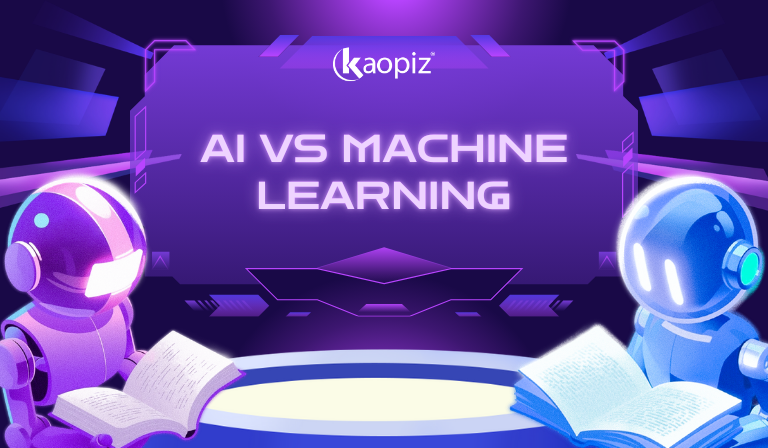
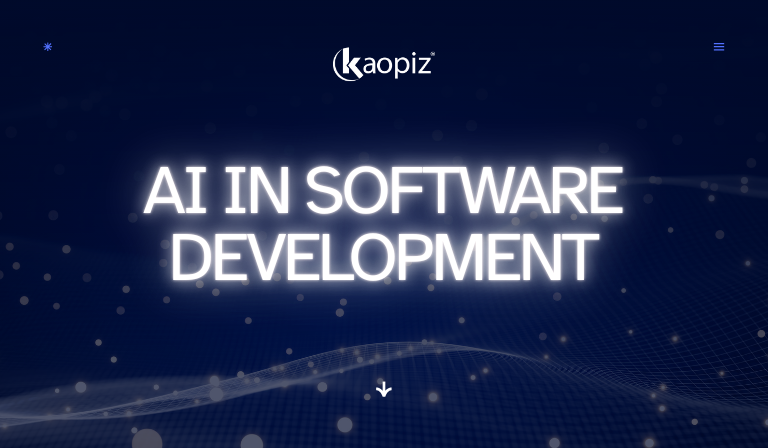
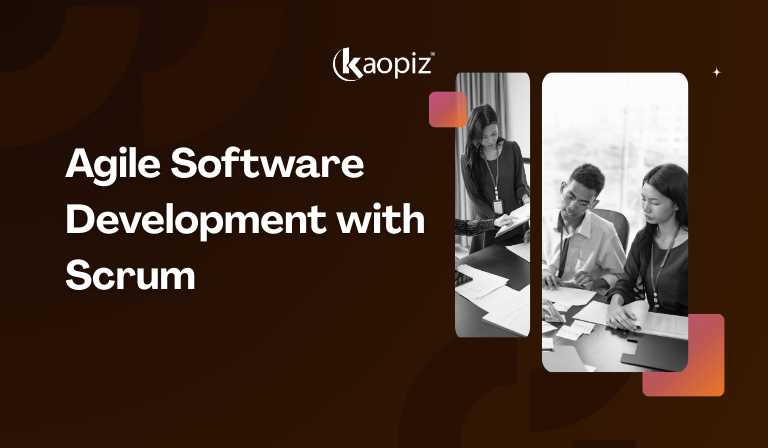
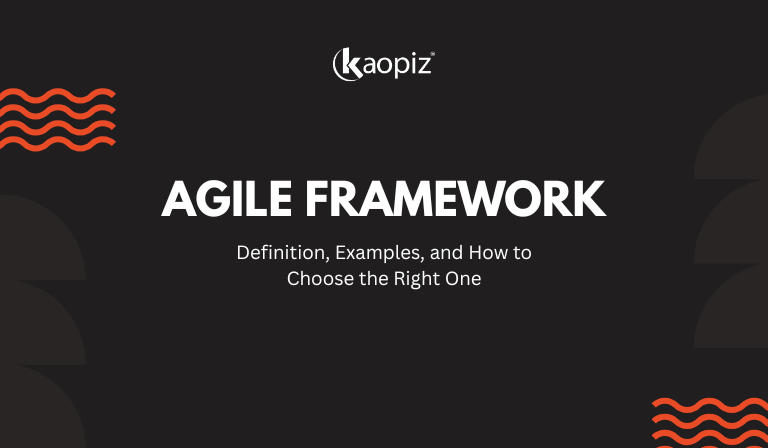
















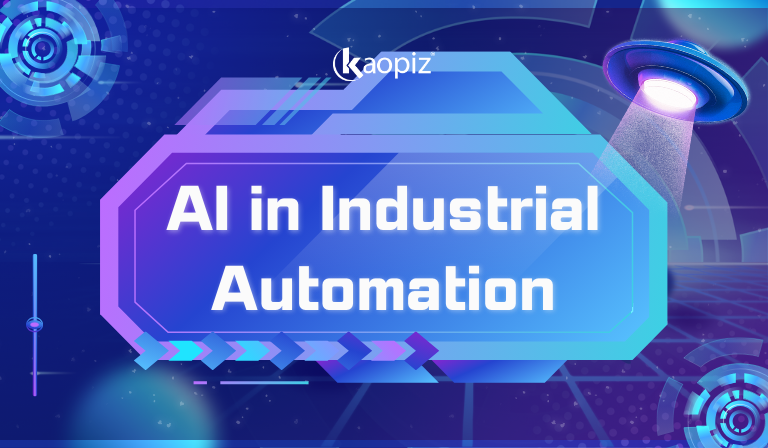

No Comments yet!